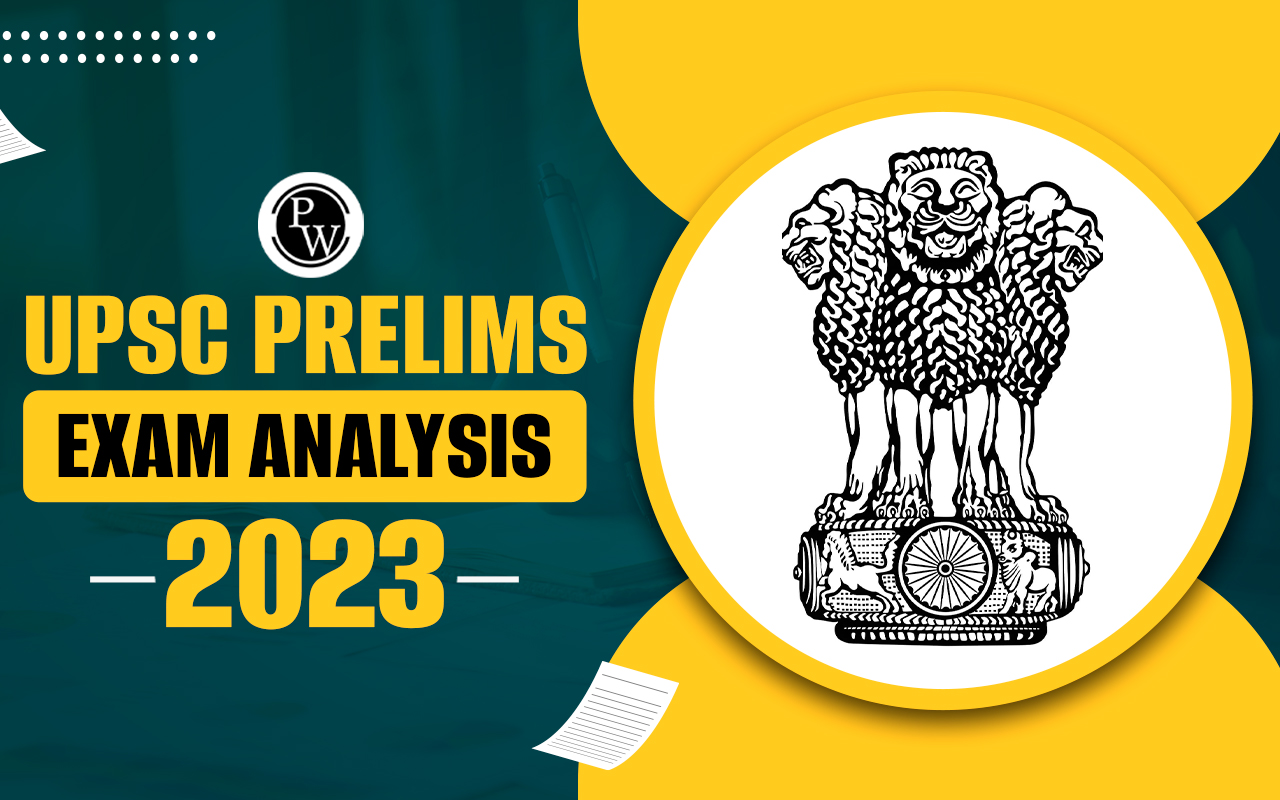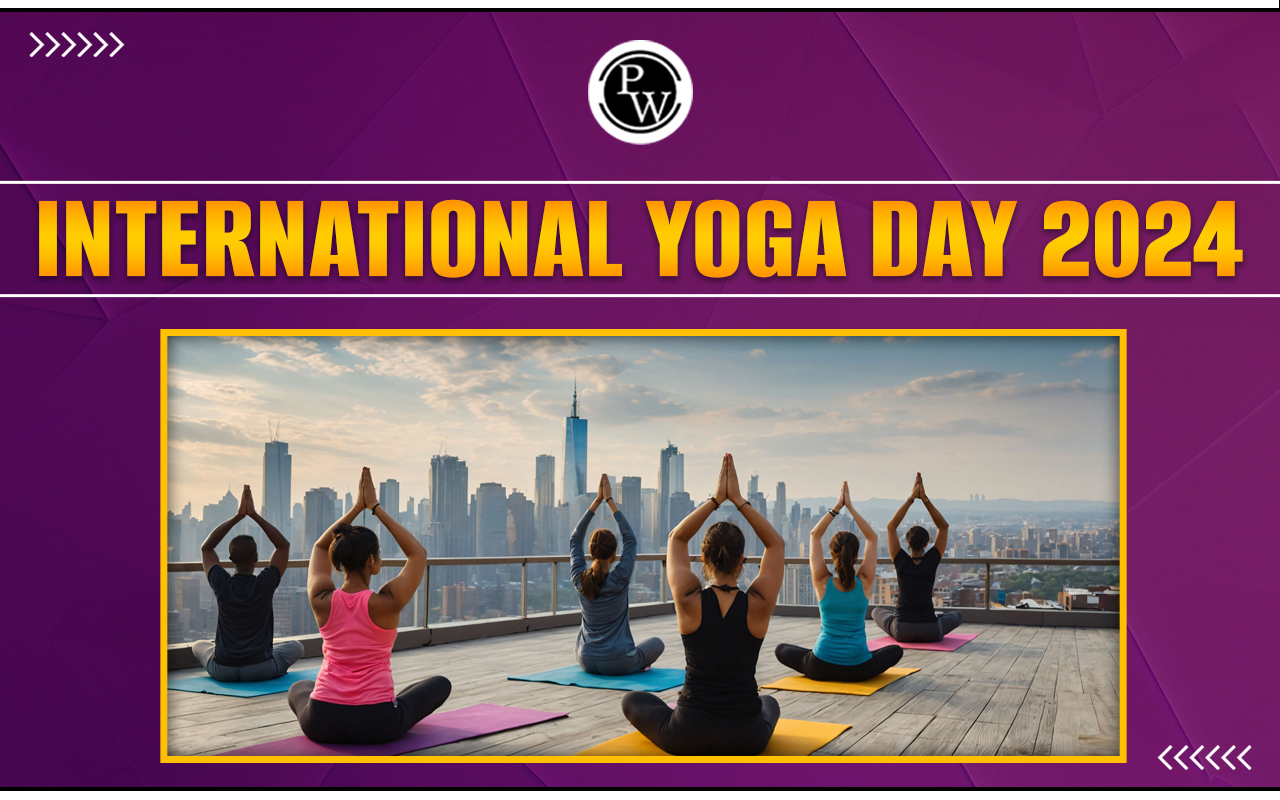
Reading Habit for the UPSC Exam: Developing a strong reading habit can be a vital step for anyone who is preparing for the UPSC exam. The extensive syllabus of the UPSC exam requires continuous reading and retention of information, but unfortunately, many aspirants do not know where and how to begin.
Luckily, resources like Physics Wallah have made it easier to learn complex topics, build consistency, and master your reading habits for UPSC preparation. In this informative guide, we will not only explore how to develop a reading habit for the UPSC exam but also discuss how Physics Wallah’s expert guidance and study materials can support you at every step.
Importance of Reading Habit While UPSC Preparation
To qualify for the UPSC exam candidates will require more than just rote learning, a deep understanding of a wide range of subjects, which includes history, polity, economics, geography, and current affairs.
Unlike rote learning, reading encourages critical thinking and connects different topics. It also keeps candidates updated on current events, improves vocabulary, and enhances communication skills. By developing a regular reading habit, aspirants can better retain information and manage their time effectively, ultimately increasing their chances of success in the exam.
How to Develop a Reading Habit for the UPSC Exam?
Developing a reading habit is necessary for every candidate to qualify for the UPSC exam. By following a structured approach and staying consistent, aspirants can develop a regular reading habit that will enhance their preparation. Here are some steps to develop this habit effectively for the UPSC exam.
1. Start with a Clear Plan
The first step in learning how to develop a reading habit for the UPSC exam is to have a structured plan. Physics Wallah provides well-organized course modules and timetables that can help aspirants plan their daily, weekly, and monthly reading schedules. These timetables break down the extensive syllabus into manageable pieces, so candidates can focus on one subject or topic at a time. PW-specialized UPSC courses provide specific goals, helping aspirants stay on track with their reading.
- Divide the syllabus using Physics Wallah’s study plans.
- Set daily goals based on their guided modules.
- Allocate time using their suggested study schedules.
Physics Wallah ensures that every part of the syllabus gets equal attention, and our approach helps the candidates to read effectively without feeling overwhelmed.
2. Start Slowly and Build Momentum
When considering how to build the reading habit for the UPSC exam , remember to start with a small portion. Physics Wallah understands this and accordingly offers aspirants bite-sized study materials and easy-to-understand video lectures. PW’s approach allows candidates to ease into UPSC preparation by starting with simple concepts and gradually increasing the level of difficulty as their reading stamina improves.
Beginners should start with short study sessions through Physics Wallah can help to prevent burnout and encourage consistent reading.
3. Choose the Right Study Materials
Knowing how to read effectively for UPSC involves selecting the best resources. Physics Wallah provides top-notch study materials that are tailored for UPSC aspirants, including NCERT summaries, current affairs notes, and comprehensive subject guides. Instead of reading multiple books and getting overwhelmed, Physics Wallah’s concise and well-researched materials ensure candidates read only what is necessary for the exam.
- NCERT-based study materials from Physics Wallah build foundational knowledge.
- Standard reference materials on all essential topics like history, polity, and economics are available.
Their expert-curated resources save time and effort while ensuring that the candidate’s reading is both efficient and effective.
4. Incorporate Active Reading Techniques
One of the best methods for learning how to develop a reading habit for the UPSC exam is through active reading. Physics Wallah encourages active engagement with the material by providing quizzes, live tests, and interactive sessions. These tools ensure that candidates not just passively read but actively absorb the information. The practice of highlighting key points, making notes, and summarizing topics becomes much easier with our structured content.
- Interactive quizzes on Physics Wallah make revision engaging and effective.
- Live doubt-clearing sessions help you clarify concepts on the spot.
PW's interactive approach ensures candidates retain what they read and build a habit of actively learning every day.
5. Regular Revision
Revision is a crucial part of any successful reading habit. Physics Wallah highlights the importance of revisiting topics regularly. Their course materials come with built-in revision modules, mock tests, and previous years’ question papers, which help candidates stay on top of the information they’ve read.
6. Consistency and Persistence
Consistency is key when figuring out how to start studying for the UPSC Exam . Physics Wallah helps candidates to remain consistent with its personalized learning schedules and daily reminders. By following their curriculum, aspirants can maintain discipline even during challenging times. PW also offers motivational talks and community support to help aspirants stay committed to their UPSC journey.
7. Time Management
If you are wondering how many hours of study are required for the UPSC exam , Physics Wallah provides clear guidelines. Depending on the current preparation level of the candidate, PW suggests appropriate study hours and how to distribute them between reading, note-making, and practice. On average, dedicating 6-8 hours of focused study is recommended, and Physics Wallah helps candidates to make the most of these hours by guiding which topics require more attention.
8. Read Diverse Topics
To succeed in UPSC, a candidate will need to cover a variety of subjects. Physics Wallah provides comprehensive material on diverse topics such as history, geography, science, technology, and environment. PW also provides access to daily current affairs, which are important for both prelims and mains.
9. Stay Motivated
Developing a reading habit can sometimes feel boring, especially when preparing for an exam as demanding as UPSC. Physics Wallah keeps students motivated through personalized mentorship programs, group study options, and peer discussions. PW also offers regular motivational sessions to keep candidates energized throughout their preparation.
Conclusion
Learning how to develop a reading habit for the UPSC exam is essential for success. With Physics Wallah by your side, you can streamline your preparation with expert guidance, curated study materials, and a structured learning plan. Physics Wallah simplifies UPSC preparation, making it easier to build a sustainable reading habit. By starting slow, staying consistent, and using the right resources, you can develop an effective reading habit that will ensure success in the UPSC exam.
Looking for guidance in UPSC preparation? Enroll in the best courses offered by Physics Wallah!
| UPSC Related Articles | ||
| UPSC Prelims Questions | NCERT for UPSC Exam 2025 | UPSC Mains Admit Card |
| UPSC Mains Exam Pattern | UPSC Rank Wise Post | UPSC Result |
Reading Habit for the UPSC Exam FAQs
Q1. How to start studying for the UPSC exam efficiently?
Q2. How to build reading habits for the UPSC exam?
Q.3 How to read effectively for UPSC?
Q.4 How many hours of study are required for the UPSC exam?
Q5. What materials can help build a reading habit for the UPSC exam?













